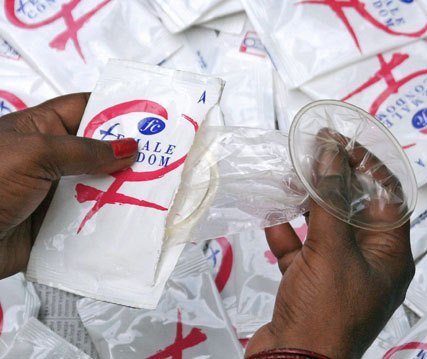‘Empower youth on sexual, reproductive rights’
Arku Jasmine
 World Contraception Day (WCD) is celebrated on September 26, every year. The annual worldwide campaign centres around a vision for a world, where every pregnancy is wanted. Its mission is to improve awareness of contraception, to enable young people to make informed choices on their sexual and reproductive health.
World Contraception Day (WCD) is celebrated on September 26, every year. The annual worldwide campaign centres around a vision for a world, where every pregnancy is wanted. Its mission is to improve awareness of contraception, to enable young people to make informed choices on their sexual and reproductive health. Today, nearly half the world’s population is under the age of 25. These three billion people – the largest-ever generation of young people – are our present and our future. Each has an indispensable role to play in achieving international development goals, driving economic and social development, and shaping the course of history.
Yet around the world, young people are all-too-often unable to make critical choices that impact their futures. We hear it straight from the young people, particularly adolescent girls and young women we work with every day – they are unable to access the information and services they need to protect their sexual and reproductive health and plan their lives.
In the world’s poorest countries, contraception use is low, and one in three women has a child before the age of 18. In sub-Saharan Africa, 53 million women want, but do not have access to modern contraception – and the unmet need is greatest among women under the age of 20.
Early pregnancies
For far too long, the issues of reproductive health and family planning for adolescents have a been taboo, and in many parts of sub-Saharan Africa, the issues have been almost completely ignored. Consequently, pregnancy and childbirth-related complications remain the leading killer of teenage girls in developing countries – and sub-Saharan Africa has the highest rates of maternal mortality in world. And countless more girls who drop out of school due to early pregnancies do not learn the skills they need to gain paid employment and contribute productively to their families, communities and nations. These facts cannot be ignored, and what we urgently need now is more support from every sector of society.
First, we need governments of developing country and donors to prioritise and scale-up youth sexual and reproductive health programmes. This includes comprehensive sexuality education that teaches young people about their rights and their options, as well as programmes to ensure that girls and young women have access to a range of contraceptive methods. We also need government to pass supportive policies that impact reproductive health such as increasing the legal age of marriage in countries where child marriage is still prevalent.
Government’s commitment
At the July 2012 London Summit on Family Planning, the Ghana Government committed to make family planning free in the public sector and to provide youth-friendly contraceptive services to sexually-active young people. These pledges clearly demonstrate the government’s commitment to improving access to the family planning services that Ghanaian girls and women want and deserve.
Second, we need to reduce the stigma associated with youth sexuality. Even when girls and young women are informed about family planning and services are available, many do not access the services due to fear of reproach or criticism. To lower cultural and social barriers to care, we must engage community leaders – including political and religious leaders in Ghana– as champions for youth sexual and reproductive health and rights. We also need to train healthcare workers to provide services to young people confidentially and without judgement.
Third, we need to encourage and empower young people to be their own advocates and agents for change. Young people in Ghana and everywhere have the right to the knowledge, tools and services they need to make informed decisions about their bodies and live full, healthy and productive lives. In many communities around the world, young women and men are working tirelessly – both individually and collectively – to demand access to sexual and reproductive health and rights.
The global conference
Recently, Women Deliver brought 100 Young Leaders to its third global conference in Kuala Lumpur, Malaysia, with the goal of building youth capacity to advocate issues around maternal and reproductive health.
At the conference, these 100 Young Leaders spoke passionately about the challenges youth face, and shared their strategies to fight for change. Giving youth a voice at international forums such as these was an important first step forward.
And, finally, we must involve boys and men in the process. By enacting supportive policies, bringing new voices into the conversation, and implementing effective, age and culturally-appropriate family planning programmes, we can make a real and lasting impact on the lives of young people everywhere and help ignite a virtuous cycle of development.
By Jill Sheffield and Remmy Shawa/Daily Graphic/Ghana
Jill Sheffield is the Founder & President of global advocacy organisation Women Deliver and Remmy Shawa is the co-ordinator for a South Africa-based non-profit organisation that focuses on gender equality, gender-based violence prevention and HIV and AIDS.
